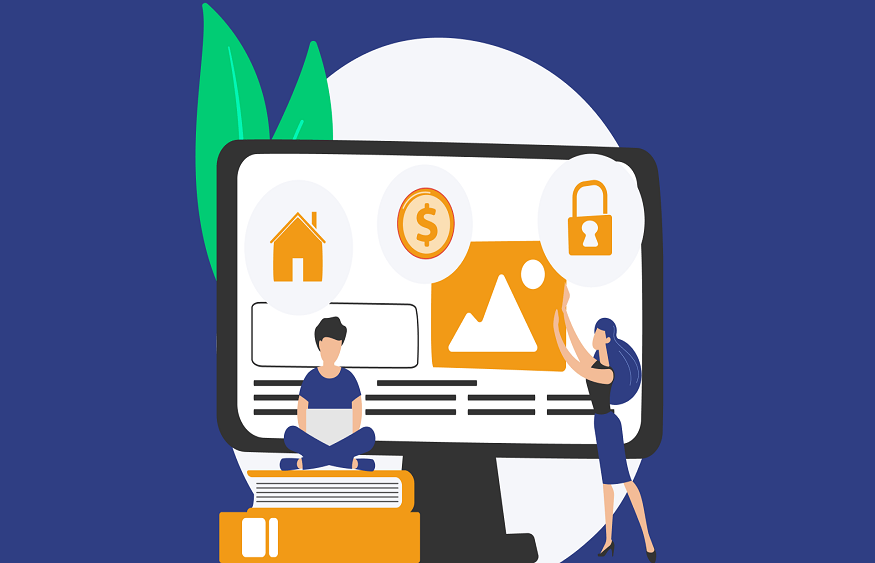
In today’s fast-paced hospitality industry, effective hotel management is essential for success. Hoteliers are constantly seeking ways to streamline their operations, enhance guest experiences, and maximize revenue. This is where the hotel revenue management system plays a pivotal role. In this article, we’ll delve into the world of hotel management software, exploring its features, benefits, and the impact it has on the hotel industry.
The hotel industry has undergone significant transformation over the past few decades, and technology has been a driving force behind these changes. Hotel management software, often referred to as Property Management Systems (PMS), has become a fundamental tool for hoteliers. These software solutions are designed to simplify and automate various aspects of hotel operations, from reservations and check-in to billing and maintenance.
1. Features of Hotel Management
Modern revenue management services offer a comprehensive set of features that cater to the various needs of the hospitality industry. Here are some of the key functionalities:
- Reservations and Booking Management: Hotel management software allows for efficient reservation management. It enables guests to make reservations online and streamlines the booking process, reducing the risk of overbooking.
- Guest Check-in and Check-out: Quick and hassle-free check-in and check-out procedures enhance the guest experience. Hotel software facilitates this by automating the process and minimizing wait times.
- Room Assignment: Software can intelligently assign rooms based on guest preferences and availability, leading to higher customer satisfaction.
- Billing and Invoicing: Automated billing and invoicing reduce errors and save time for both guests and staff. It also enables easy tracking of expenses.
- Inventory Management: Efficiently manage hotel assets, such as room inventory, food, and beverage supplies, and more.
- Housekeeping and Maintenance: Track room cleaning schedules and maintenance requests. This ensures rooms are always in optimal condition.
- Guest Relationship Management (CRM): Collect and store guest information for personalizing their experiences and building long-term relationships.
- Reporting and Analytics: Generate reports on occupancy rates, revenue, and other key performance metrics to make informed decisions.
Benefits
Implementing hotel management software brings several advantages to hotel owners and staff:
- Efficiency: Automation of tasks like reservations and check-ins speeds up operations, reduces errors, and frees up staff to focus on other important guest services.
- Improved Guest Experience: Streamlined processes and better management of guest preferences lead to enhanced guest satisfaction and increased loyalty.
- Maximized Revenue: Optimized pricing strategies and improved occupancy rates contribute to increased revenue and profitability.
- Data-Driven Decision-Making: Hotel software provides valuable insights through analytics, helping hoteliers make informed decisions.
- Cost Reduction: Reduced manual labor, better inventory management, and less reliance on paperwork result in cost savings.
- Enhanced Security: Protect sensitive guest information with secure, encrypted systems, reducing the risk of data breaches.
- Integration Capabilities: Many hotel management systems can integrate with other software, such as accounting and marketing tools, for a more cohesive operation.
Types
There are various types of hotel management software tailored to different types and sizes of hotels. The main categories include:
- Property Management System (PMS): These systems are the core of hotel management software. They handle basic front-desk operations, room assignments, and billing.
- Channel Manager: Channel management software ensures that room availability and rates are synchronized across various online booking platforms, reducing the risk of overbooking and rate disparities.
- Booking Engine: Booking engines are integrated into hotel websites, allowing guests to make reservations directly on the hotel’s site.
- Revenue Management Software: These tools use algorithms and data analytics to optimize pricing strategies for rooms.
- Point of Sale (POS) System: POS systems are used in restaurants and bars within hotels to manage orders, payments, and inventory.
- Customer Relationship Management (CRM) Software: CRM software helps hotels build and maintain relationships with guests, leading to increased loyalty.
The Impact on the Hotel Industry
Hotel management software has had a profound impact on the hotel industry. Here are some key ways it has transformed the sector:
- Streamlined Operations: With automation and integration, hotels can operate more efficiently, reducing manual tasks and freeing up staff for more meaningful guest interactions.
- Competitive Advantage: Hotels using advanced software have a competitive edge. They can offer guests a seamless experience and provide better service, ultimately leading to more bookings.
- Data-Driven Decision Making: The data and analytics provided by hotel management software allow hoteliers to make informed decisions about pricing, marketing, and guest services.
- Improved Revenue Management: Software tools can optimize room rates based on demand and market conditions, maximizing revenue potential.
- Personalization: CRM features enable hotels to personalize guest experiences, from greeting guests by name to offering their preferred amenities.
Choosing the Right Hotel Management Software
Selecting the appropriate hotel management software is crucial for success. Hoteliers should consider factors such as the size of the property, budget, and specific needs. It’s also important to choose a reputable provider with good customer support.
VII. Future Trends in Hotel Management Software
The hotel industry continues to evolve, and so does hotel management software. Here are some future trends to watch:
- Artificial Intelligence (AI): AI is being used to enhance chatbots for customer service, optimize pricing, and predict maintenance needs.
- Blockchain: Blockchain technology can enhance security and transparency in transactions and guest identification.
- Contactless Solutions: The COVID-19 pandemic has accelerated the adoption of contactless check-in, keyless entry, and mobile payments.
- Sustainability: More hotels are integrating sustainability features into their software, helping with eco-friendly practices.
- Augmented Reality (AR) and Virtual Reality (VR): These technologies can be used for virtual tours, room previews, and interactive guest experiences.
Overcoming Challenges with Hotel Management Software
While hotel management software offers a plethora of benefits, it’s important to acknowledge and address the challenges that may arise during its implementation and usage.
- .Integration Complexity.: Integrating new software with existing systems can be complex. Hoteliers should ensure that the software they choose is compatible with their current infrastructure.
- .Staff Training: Transitioning to new software may require staff training. This can be time-consuming and disruptive if not handled properly. However, most software providers offer training resources to ease this process.
- .Initial Investment.: Acquiring and implementing hotel management software requires an initial investment. Smaller establishments may find it daunting, but the long-term benefits often outweigh the cost.
- .Data Security.: While hotel management software enhances data security, it also presents new risks. Hotels should be vigilant about protecting guest information from potential cyber threats.
Hotel management software has emerged as a game-changer in the hospitality industry. Its impact is far-reaching, touching upon every aspect of hotel operations. From improving guest experiences and enhancing efficiency to maximizing revenue and data-driven decision-making, it has become an indispensable tool for hoteliers.
As the industry continues to evolve, embracing emerging technologies and trends, hotels that stay ahead of the curve will secure a competitive advantage. The future promises even more exciting innovations, including the integration of AI, blockchain, and sustainability features.
Conclusion
Hotel management software has revolutionized the hospitality industry, enhancing efficiency, guest experiences, and revenue management. With the right choice of software and adaptation to emerging trends, hotels can remain competitive in a dynamic and ever-evolving market. The future of hotel management software promises even more exciting innovations, ultimately benefiting both hoteliers and their valued guests.

